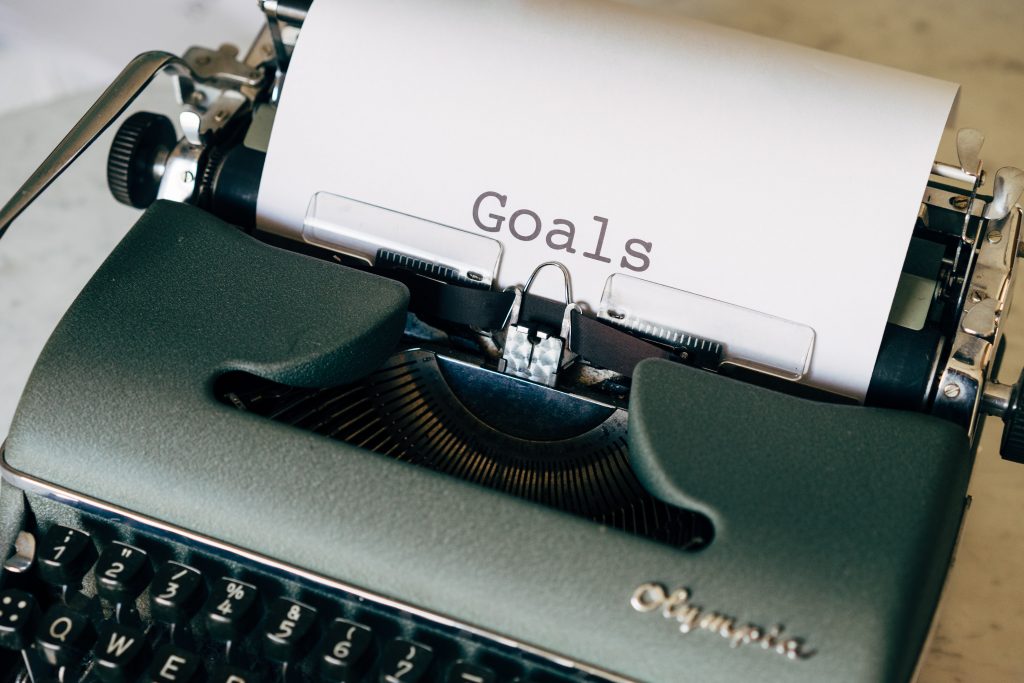This post may contain affiliate links, which means I’ll receive a commission if you purchase through my links, at no extra cost to you. Please read my full disclosure for more information.

First and foremost, I would just like to warn that some level of laziness is needed in our day to day lives in order to prevent us from burn out. As well as some level of laziness and/or idleness is also useful to allow our creative wells to fill up.
In this post, I am referring to laziness that is detrimental to your overall well-being and productivity. And thus, I offer 7 easy tricks that have helped me to fight laziness.
1. Analyze your days of the week for a week
My first tip would be to analyze your days of the week for a week. To some people that might sound ridiculous and I get it.
So then why is this my first tip?
It is my first tip because I truly believe that as humans we all have lazy hours in a day. When I analyzed meticulously the hours of my days for a week; I noticed when my lazy hours occurred.
And I did two things:
I either used those hours to relax and decompress and/or if I really needed to; I would push myself harder when those hours came around.
My first lazy hour is after working out and my second lazy hour is after my main meal of the day.
What did I decide to do?
I started to eat my big meal after my workout because I knew I’d be too lazy to do anything else. Additionally, having – and knowing that was my lazy hour – that lazy hour as my meal hour made me enjoy it much more, especially since it fell right after a workout. 😅
By analyzing the days of your week and noticing when and where you have the most lulls; you can be preventative. You can start to mixed tasks around in your schedule to trick yourself and actually benefit from those lazy hours!

Note that during this one week time you should try to track yourself the best you can. You should try to time yourself in order to see the approximate time a task takes you to accomplish. In this analysis, you can also see how long that task take when you’re in productive hour or when you’re in a lazy hour.
I personally use the Forest app in order to track myself to get focus work done. The Forest app operates using timers. You can label the different tasks you’ve engaged during your focused work minutes/hours.
2. Make more reasonable goals
Listen, sometimes we think we are simply being lazy and we beat ourselves up about it. But in reality, we are just procrastinating because the task at hand seems too big, too daunting to get a start on.
Luckily there is a simple solution to this problem! 😉
We can set much more reasonable goals. In doing so, we also break down a huge task into smaller tasks and therefore, we reduce our need to procrastinate. We reduce the urge to sit around and remain stubbornly lazy.
Yes, I call this stubborn laziness.
I have dealt with this type of laziness often during my university years, and again, when I first started my blog. If you’re anything like me, when you feel overwhelmed; you also start to feel lazy – especially if there are no looming deadlines that are set by exterior expectations.

When you make your goals for the next week, try making them more manageable and hourly based.
How?
Let me give you an example.
For the next week instead of me writing in my journal ‘finish the first draft of my novel.’ I’ll write ‘work one hour of focused novel writing in the morning.’ This is much better than the alternative of scaring myself with the big goal of “finish your novel.”
(I know that I can write 1000-1500 words in an hour of focused work because I’ve extensively timed myself.)
In this matter, during the 4th day of the week, I might already finish the last 5000 words of my novel because I had set a realistic sounding, time-appropriate goal.
SEE ALSO: How to Achieve Your Goals
3. Don’t over-reward yourself
Another tip would be not to over-reward yourself. Now if this doesn’t seem obvious to you; I’ll try to break it down for you.
If I rewarded myself every time I wrote a blog post; it would have the opposite reaction of the desired effect on me (which is to write more blog posts).
Instead of writing more blog posts, I’d write less. Why? Because I got rewarded already for something I was already expecting of myself. I rewarded myself for the minimal effort and expectation I held for myself.
It might be hard to swallow this idea but… getting the work done, working through your lazy hours should be a reward in of itself. It is because you have shown and proven to yourself that you can get it the word done despite initial feelings and/or patterns of laziness or of extreme procrastination.
Now if you kept rewarding yourself, you’ll never learn how to get out of your habitual laziness for your own sake. Over rewarding yourself can easily become a bad habit and further detrimental in your fight against laziness.
For example if you say you will reward yourself every time you finish reading a chapter by watching a video on YouTube; you’re actually holding yourself back from pushing yourself to build your tolerance in which you could be reading 2-3 chapters at time.
You become too reliant on rewards. Whereas you should be challenging yourself, since, in fact it is more rewarding for your general productivity and for breaking up your laziness cycles.
4. Limit distractions
My next tip involves limiting distractions. Seems easy to do? But in fact it is quite hard. Sometimes extreme measures are even required in order to limit distractions.
Back during my undergraduate days, I would study at Starbucks with a friend. And you might think we were distracting each other or that by being in a public café might have been distracting to us. But you know what, those regular distractions weren’t distracting to our accustomed studying.
What truly was distracting: our cellphones. We’d constantly reach for our phones and scroll apps even during the middle studying/essay writing. It came to a point that when one of us touched our phone; the other also instinctively touched their phone.

It was as if no matter who touched their phones – it would distract the other. Why? Because as humans growing and living in a digital era, we are constantly reassured by our phones. We’ve become hooked to checking the various social media feeds, the messages, and the stories. Although we should be working, we psychologically could not miss out.
Catastrophically reducing our attention span and promoting laziness (that is falsely disguised under the ingrained productive actions of ‘answering’ notifications and ‘scrolling’ feeds.)
I personally did not trust myself when it came around to exam season. It was not enough for me to delete my social media apps – I was an addict. I had to completely deactivate my accounts if I wanted to be truly focused.
Only by limiting my distractions daily (e.g.,my phone and consequently social media) did I get a grip on my patterns of laziness. I now know that there are times of the day for me that I am allowed to be lazy. And that, at other times, I stay away from the distractions because then I would always have an accomplice in keeping me lazy.
Going back to the Forest app, it helps restrict – if you choose the option for it to do so – the access of your apps. When you leave the app before the timer – you set for yourself – is up; you kill the tree that you’ve planted, and consequently, you can’t build your forest (a metaphor for your productivity).
Guess what I am using right now to write this blog post. 😉
5. Visualize yourself
Another tip that has served me is to visualize my ideal self. When I visualize myself having a healthier body or visualize myself not worrying about my monthly income; a shift takes place not only my mind but also in my body.
Suddenly, I am standing up erect and I want to do the work. I want to do the thing – the steps, the tasks – that would get me there. I want to jump on the treadmill, I want to work on my online business, I want to write that next chapter of that book I said I would finish and get published, etc.
Not only did I visualize and see myself doing all of these things, now I am committed. I am in movement and in a decisive agreement between my mind and body to do the thing. And generally, I do.
If it doesn’t work at first, you need to get into the habit of visualizing. Note that visualizing is different from daydreaming. Because when you visualize you see yourself in action and you come up with your own solutions – steps – on how to get to that self.
You know what it takes to get to that person you want to be. You’re not daydreaming someone else’s life or something that is abstract like winning the lottery. No, you are visualizing yourself in the future and it is current you that can get you there.
And so you get up in the now to build that path you visualized for your future self.
6. Have inspiration at hand
A sixth tip that can help you fight laziness would be to always keep inspiration at hand. Now this totally depends on you. It depends on what inspires and motivates you to keep going.
Some people stick photos on their mirror for when they wake up in the morning in order to be reminded of their goals.
For me, simply having a vision board – containing my main and most important goals of the year – is sufficient enough.
You can have pep talks saved onto your computer. A playlist of motivating and inspirational YouTube videos.
I like to watch motivational Ted Talks (you can watch Ted Talks here.) And I like to read and refer to inspirational books such as Austin Kleon’s “Keep Going.”
Furthermore, you can have a collection of prints, pep talks, quotes, photos, trackers, whatever it is that motivates and inspires you. Use all of these sources to your advantage. They keep you accountable, which leads us to our final tip.
SEE ALSO: How to Create a Vision Board
7. Have an accountability partner
My final tip for this blog post on how to fight laziness is to have an accountability partner.
Study with a partner.
Write with a friend.
Invest money with your spouse.
Join communities of people that share your struggle and see how they overcome laziness or a lack of productivity.
You can have your best friend or family member check in with you at the end of the week and/or day to see if you’ve worked on the tasks you set up for yourself or worked on the personal goals you want to accomplish.

Note that accountability partners are not meant to shame you or put you down. That is a big red flag. However, your accountability partner shouldn’t be too lenient and/or permissive because then you have two people allowing you not to do work: you and your so-called-accountabilty-partner that validates your bad habit of not finishing things.
Accountability partners help you keep you accountable and help find solutions to get you through the work you promised to do. It reflects poorly on the both of you to see the other fail. In that way, it is a partnership and both members have to put in effort.
Remember tip #4 in which I said to limit distractions? That friend that I used to study at Starbucks with, we both decided that we wouldn’t touch our phones for an hour at a time. We’d both set our phones aside. After we got an hour of focused work done, we were able to touch our phones and have a very short break.
Plus, don’t forget that before this consensus, when one would touch their phone it incited the same behaviour in the other. The same goes for accountability partners.
I hope you enjoyed these 7 easy tricks on how to fight laziness! 💪🏽 Let me know some of the ways in which you combat day to day laziness! Have you tried any of these tricks and did they work for you, why or why not?
- What is Autofiction? (5 Autofiction Novels To Read)
- How to Become Your Own Bestfriend (5 Helpful Tips + My Experiences)
- How to Write a Love Letter (6 Helpful Tips)
- 15 Work From Home Office Essentials for Maximum Productivity
- 10 Highly Effective Tips to Succeed in Online Classes in 2022








Leave a Reply